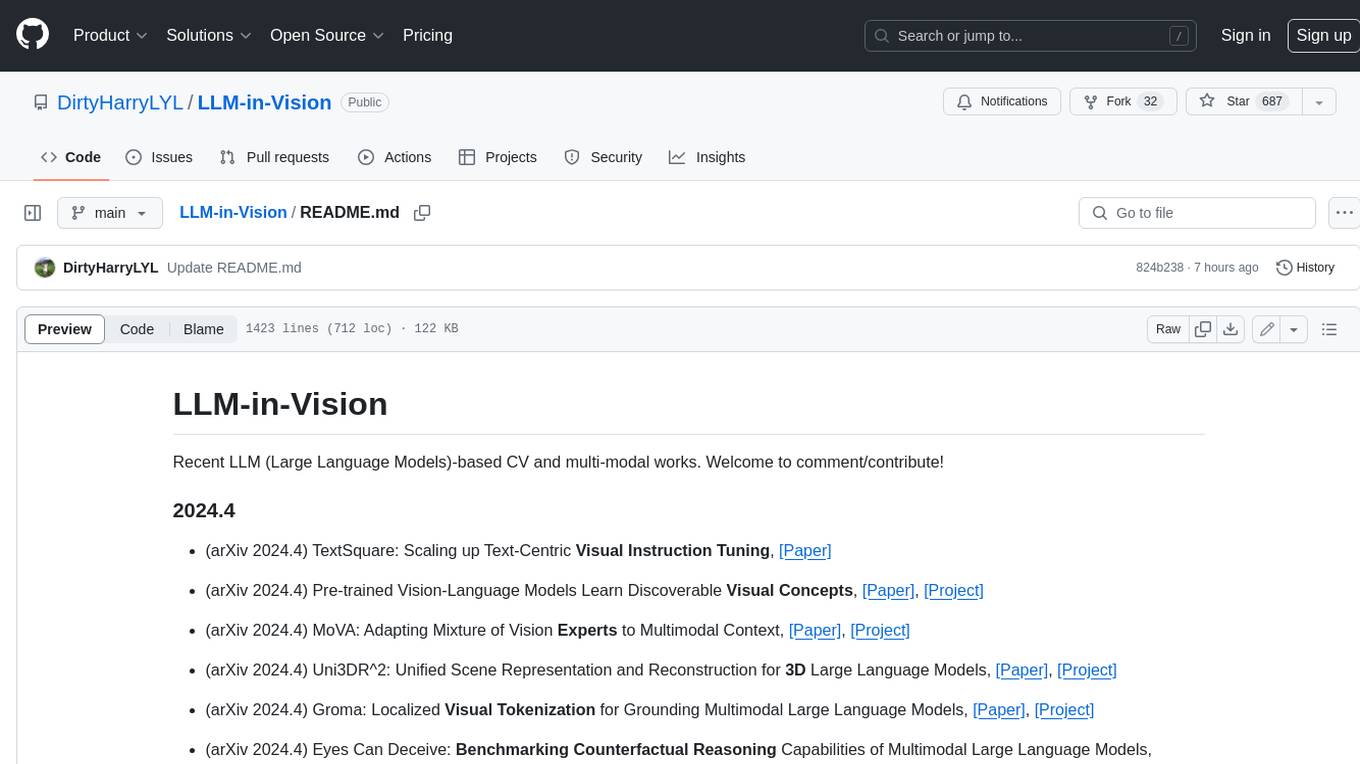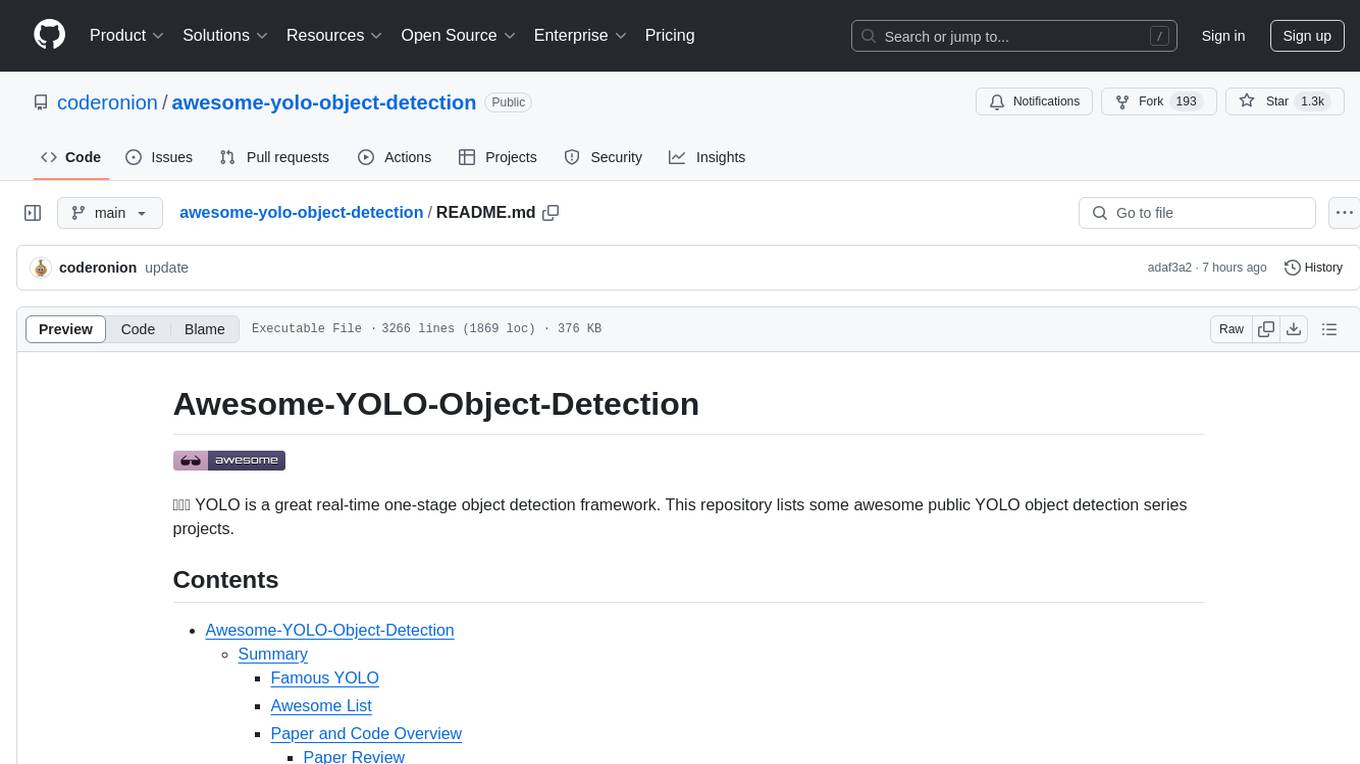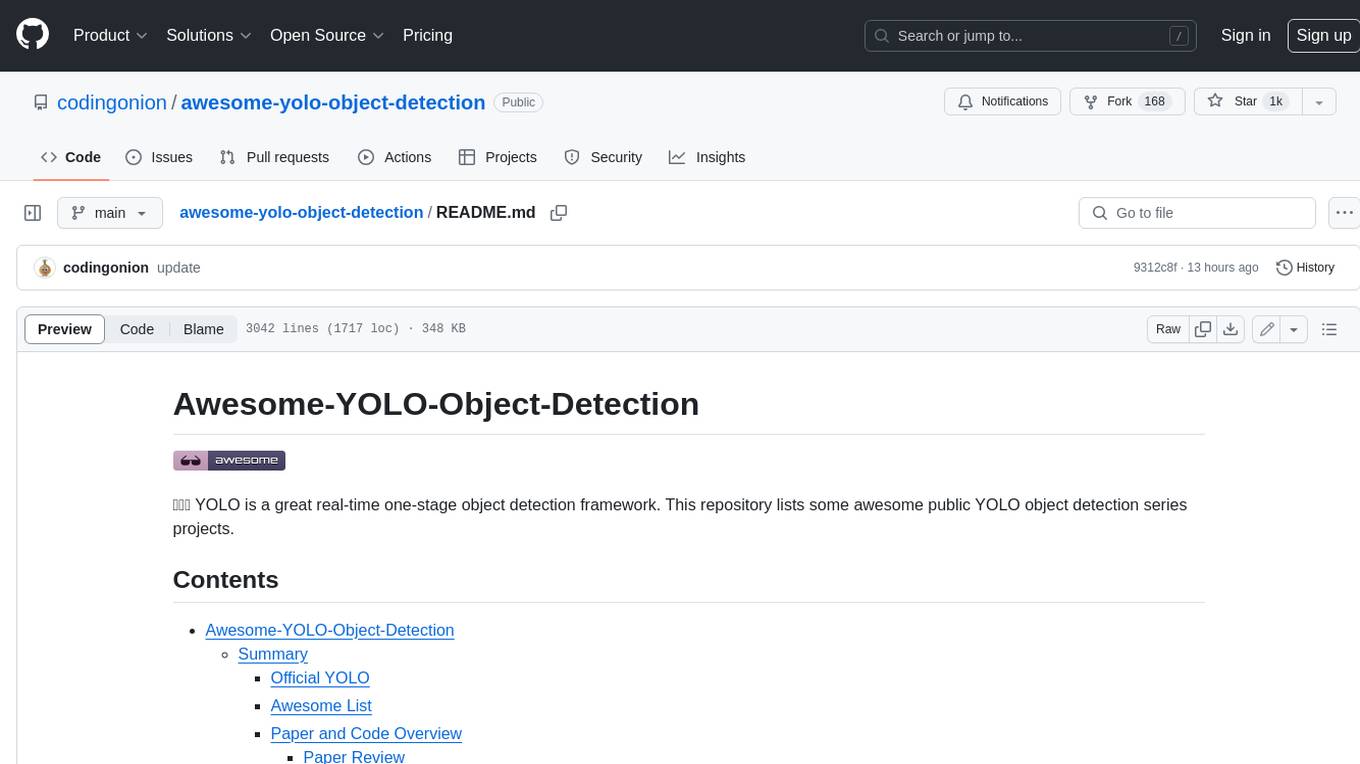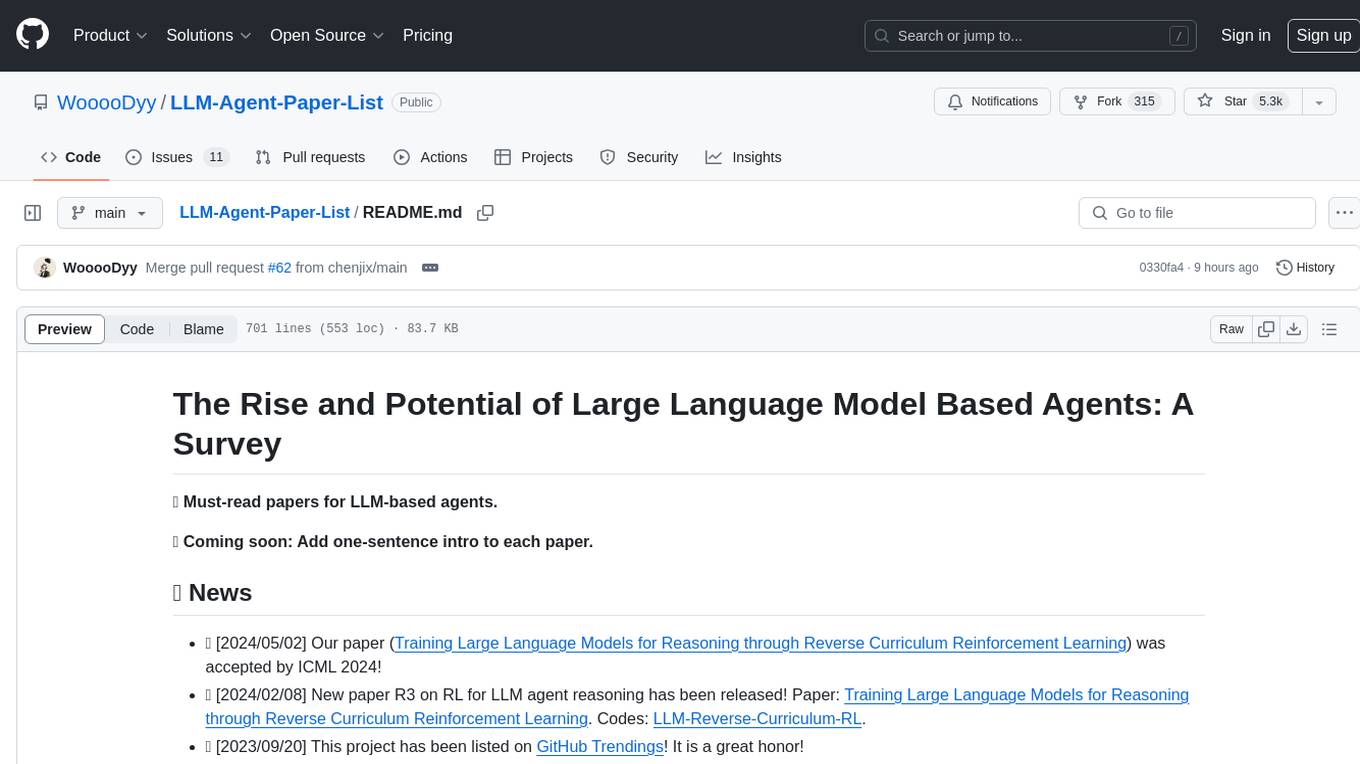
LLM-IR-Bias-Fairness-Survey
This is the repo for the survey of Bias and Fairness in IR with LLMs.
Stars: 52
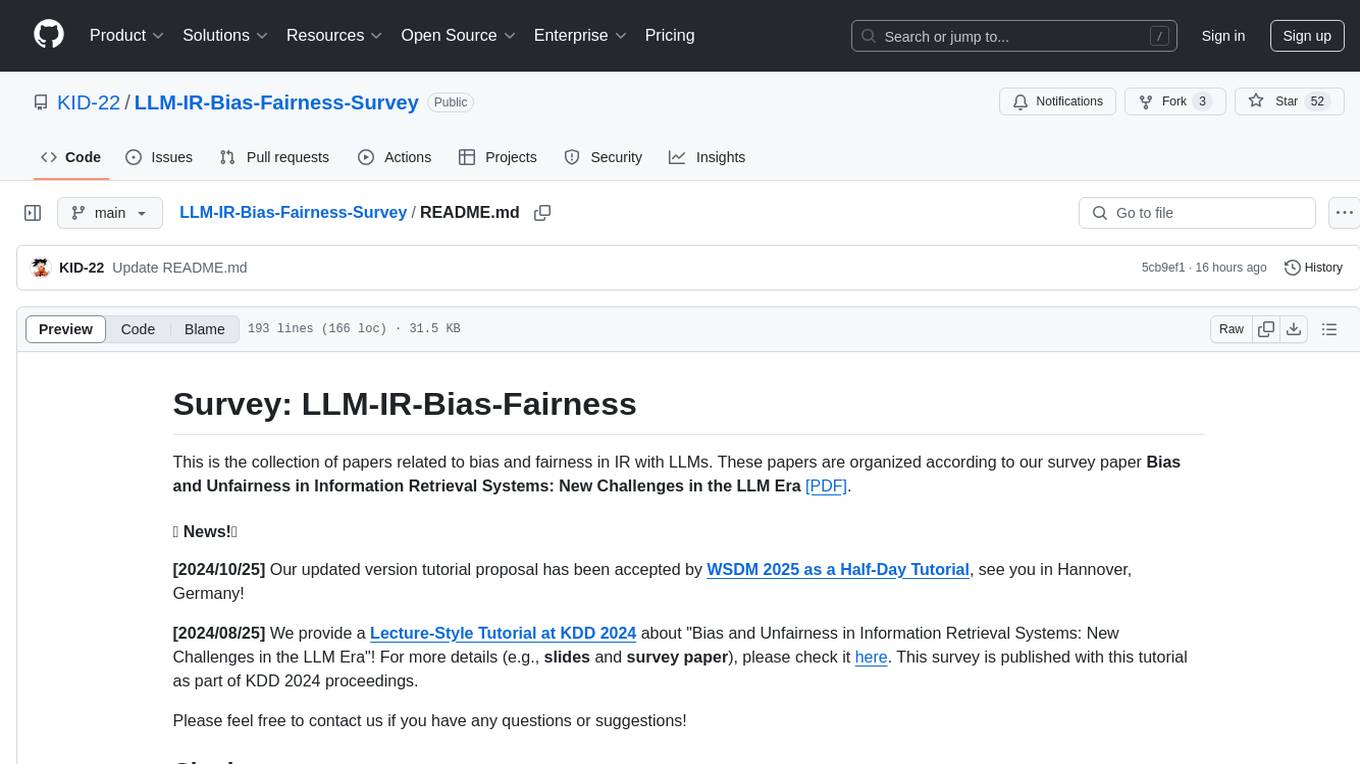
LLM-IR-Bias-Fairness-Survey is a collection of papers related to bias and fairness in Information Retrieval (IR) with Large Language Models (LLMs). The repository organizes papers according to a survey paper titled 'Bias and Unfairness in Information Retrieval Systems: New Challenges in the LLM Era'. The survey provides a comprehensive review of emerging issues related to bias and unfairness in the integration of LLMs into IR systems, categorizing mitigation strategies into data sampling and distribution reconstruction approaches.
README:
This is the collection of papers related to bias and fairness in IR with LLMs. These papers are organized according to our survey paper Bias and Unfairness in Information Retrieval Systems: New Challenges in the LLM Era [PDF].
[2024/10/25] Our updated version tutorial proposal has been accepted by WSDM 2025 as a Half-Day Tutorial, see you in Hannover, Germany!
[2024/08/25] We provide a Lecture-Style Tutorial at KDD 2024 about "Bias and Unfairness in Information Retrieval Systems: New Challenges in the LLM Era"! For more details (e.g., slides and survey paper), please check it here. This survey is published with this tutorial as part of KDD 2024 proceedings.
Please feel free to contact us if you have any questions or suggestions!
If you find our work useful for your research, please cite our work:
@inproceedings{dai2024bias,
title={Bias and Unfairness in Information Retrieval Systems: New Challenges in the LLM Era},
author={Dai, Sunhao and Xu, Chen and Xu, Shicheng and Pang, Liang and Dong, Zhenhua and Xu, Jun},
booktitle={Proceedings of the 30th ACM SIGKDD Conference on Knowledge Discovery and Data Mining},
pages={6437--6447},
year={2024}
}
@inproceedings{dai2025unifying,
title = {Unifying Bias and Unfairness in Information Retrieval: New Challenges in the LLM Era},
author = {Dai, Sunhao and Xu, Chen and Xu, Shicheng and Pang, Liang and Dong, Zhenhua and Xu, Jun},
booktitle = {Proceedings of the Eighteenth ACM International Conference on Web Search and Data Mining},
pages = {998–1001},
numpages = {4},
year = {2025},
}
In this survey, we provide a comprehensive review of emerging and pressing issues related to bias and unfairness in three key stages of the integration of LLMs into IR systems.
We introduce a unified framework to understand these issues as distribution mismatch problems and systematically categorize mitigation strategies into data sampling and distribution reconstruction approaches.
-
Neural Retrievers are Biased Towards LLM-Generated Content, KDD 2024. [Paper]
-
Invisible Relevance Bias: Text-Image Retrieval Models Prefer AI-Generated Images, SIGIR 2024. [Paper]
-
Blinded by Generated Contexts: How Language Models Merge Generated and Retrieved Contexts for Open-Domain QA?, ACL 2024. [Paper]
-
Perplexity-Trap: PLM-Based Retrievers Overrate Low Perplexity Documents, ICLR 2025. [Paper]
-
Source Echo Chamber: Exploring the Escalation of Source Bias in User, Data, and Recommender System Feedback Loop, SIGIR 2025. [Paper]
-
Mitigating Source Bias with LLM Alignment, SIGIR 2025. [Paper]
-
Generative Ghost: Investigating Ranking Bias Hidden in AI-Generated Videos, Preprint 2025. [Paper]
-
Textbooks Are All You Need , Preprint 2023. [Paper]
-
Measuring and Narrowing the Compositionality Gap in Language Models, Findings of EMNLP 2023 [Paper]
-
In-Context Retrieval-Augmented Language Models, TACL 2023 [Paper]
-
Search-in-the-Chain: Interactively Enhancing Large Language Models with Search for Knowledge-intensive Tasks, WWW 2024 [Paper]
-
List-aware Reranking-Truncation Joint Model for Search and Retrieval-augmented Generation, WWW 2024 [Paper]
-
Unsupervised Information Refinement Training of Large Language Models for Retrieval-Augmented Generation, Preprint 2024 [Paper]
-
Improving Language Models via Plug-and-Play Retrieval Feedback, Preprint 2024 [Paper]
-
Llama 2: Open Foundation and Fine-Tuned Chat Models, Preprint 2023 [Paper]
-
Unified Detoxifying and Debiasing in Language Generation via Inference-time Adaptive Optimization, ICLR 2023 [Paper]
-
Recitation-Augmented Language Models, ICLR 2023 [Paper]
-
Self-Consistency Improves Chain of Thought Reasoning in Language Models, ICLR 2023 [Paper]
-
Large Language Models are Zero-Shot Rankers for Recommender Systems, ECIR 2024. [Paper]
-
Found in the Middle: Permutation Self-Consistency Improves Listwise Ranking in Large Language Models, Preprint 2023. [Paper]
-
RecRanker: Instruction Tuning Large Language Model as Ranker for Top-k Recommendation, Preprint 2023. [Paper]
-
Large Language Models are Effective Text Rankers with Pairwise Ranking Prompting, Preprint 2023. [Paper]
-
Exploring Large Language Model for Graph Data Understanding in Online Job Recommendations, Preprint 2023. [Paper]
-
Large Language Models are Not Stable Recommender Systems, Preprint 2023. [Paper]
-
A Bi-Step Grounding Paradigm for Large Language Models in Recommendation Systems, Preprint 2023. [Paper]
-
Large Language Models as Zero-Shot Conversational Recommenders, CIKM 2023. [Paper]
-
Improving Conversational Recommendation Systems via Bias Analysis and Language-Model-Enhanced Data Augmentation, EMNLP 2023. [Paper]
-
Understanding Biases in ChatGPT-based Recommender Systems: Provider Fairness, Temporal Stability, and Recency, Preprint 2024. [Paper]
-
ChatGPT for Conversational Recommendation: Refining Recommendations by Reprompting with Feedback, Preprint 2024. [Paper]
-
Cross-Task Generalization via Natural Language Crowdsourcing Instructions, ACL 2022 [Paper]
-
Multitask Prompted Training Enables Zero-Shot Task Generalization, ICLR 2022 [Paper]
-
Self-Instruct: Aligning Language Models with Self-Generated Instructions, ACL 2023 [Paper]
-
Bridging the Gap: A Survey on Integrating (Human) Feedback for Natural Language Generation, TACL 2023 [Paper]
-
Investigating the Effectiveness of Task-Agnostic Prefix Prompt for Instruction Following, AAAI 2024 [Paper]
-
LongAlign: A Recipe for Long Context Alignment of Large Language Models, Preprint 2024. [Paper]
-
Data Engineering for Scaling Language Models to 128K Context, Preprint 2024. [Paper]
-
Large Language Models Are Not Robust Multiple Choice Selectors, ICLR 2024. [Paper]
-
Humans or LLMs as the Judge? A Study on Judgement Biases, Preprint 2024. [Paper]
-
Benchmarking Cognitive Biases in Large Language Models as Evaluators, Preprint 2023. [Paper]
-
Large Language Models Sensitivity to The Order of Options in Multiple-Choice Questions, Preprint 2023. [Paper]
-
Large Language Models are not Fair Evaluators, Preprint 2023. [Paper]
-
Judging LLM-as-a-Judge with MT-Bench and Chatbot Arena, NeurIPS 2023. [Paper]
-
Can Large Language Models be Trusted for Evaluation? Scalable Meta-Evaluation of LLMs as Evaluators via Agent Debate, Preprint 2024. [Paper]
-
EvalLM: Interactive Evaluation of Large Language Model Prompts on User-Defined Criteria, CHI 2024. [Paper]
-
LLMs as Narcissistic Evaluators: When Ego Inflates Evaluation Scores, Preprint 2023. [Paper]
-
Verbosity Bias in Preference Labeling by Large Language Models, Preprint 2023. [Paper]
-
Style Over Substance: Evaluation Biases for Large Language Models, Preprint 2023. [Paper]
-
An Empirical Study of LLM-as-a-Judge for LLM Evaluation: Fine-tuned Judge Models are Task-specific Classifiers, Preprint 2024. [Paper]
-
G-Eval: NLG Evaluation using GPT-4 with Better Human Alignment, Preprint 2023. [Paper]
-
PRD: Peer Rank and Discussion Improve Large Language Model based Evaluations, Preprint 2023. [Paper]
-
ALLURE: Auditing and Improving LLM-based Evaluation of Text using Iterative In-Context-Learning, Preprint 2023. [Paper]
-
Teacher-Student Training for Debiasing: General Permutation Debiasing for Large Language Models, Preprint 2024. [Paper]
-
PRE: A Peer Review Based Large Language Model Evaluator, Preprint 2024. [Paper]
-
Aligning with Human Judgement: The Role of Pairwise Preference in Large Language Model Evaluators, Preprint 2024. [Paper]
-
LLM Evaluators Recognize and Favor Their Own Generations, Preprint 2024. [Paper]
-
Measuring and Mitigating Unintended Bias in Text Classification, AIES 2018. [Paper]
-
Gender-tuning: Empowering Fine-tuning for Debiasing Pre-trained Language Models, ACL 2023. [Paper]
-
Gender Bias in Neural Natural Language Processing, Preprint 2019. [Paper]
-
MoralDial: A Framework to Train and Evaluate Moral Dialogue Systems via Moral Discussions, ACL 2023. [Paper]
-
SaFeRDialogues: Taking Feedback Gracefully after Conversational Safety Failures, ACL 2022. [Paper]
-
Do LLMs Implicitly Exhibit User Discrimination in Recommendation? An Empirical Study, Preprint 2023. [Paper]
-
Is ChatGPT Fair for Recommendation? Evaluating Fairness in Large Language Model Recommendation, Recsys 2023. [Paper]
-
Mitigating harm in language models with conditional-likelihood filtration, Preprint 2021. [Paper]
-
Exploring the limits of transfer learning with a unified text-to-text transformer, JMLR 2020. [Paper]
-
CFaiRLLM: Consumer Fairness Evaluation in Large-Language Model Recommender System, Preprint 2024. [Paper]
-
BLIND: Bias Removal With No Demographics, ACL 2023. [Paper]
-
Identifying and Reducing Gender Bias in Word-Level Language Models, NAACL 2019. [Paper]
-
Reducing Sentiment Bias in Language Models via Counterfactual Evaluation, Findings-EMNLP' 20. [Paper]
-
Reducing Gender Bias in Word-Level Language Models with a Gender-Equalizing Loss Function, ACL-workshop 2019. [Paper]
-
Bias of AI-Generated Content: An Examination of News Produced by Large Language Models, Preprint 2023. [Paper]
-
Educational Multi-Question Generation for Reading Comprehension, BEA-workshop 2022 [Paper]
-
Pseudo-Discrimination Parameters from Language Embeddings, Preprint 2024 [Paper]
-
Item-side Fairness of Large Language Model-based Recommendation System, WWW 2024 [Paper]
-
Bias of AI-generated content: an examination of news produced by large language models, Scientific Reports [Paper]
-
Generating Better Items for Cognitive Assessments Using Large Language Models, BEA-workshop 2023 [Paper]
-
Dynamically disentangling social bias from task-oriented representations with adversarial attack, NAACL 2021 [Paper]
-
Using In-Context Learning to Improve Dialogue Safety, EMNLP-findings 2023 [Paper]
-
Large pre-trained language models contain human-like biases of what is right and wrong to do, NML 2023 [Paper]
-
BlenderBot 3: a deployed conversational agent that continually learns to responsibly engage, Preprint 2022 [Paper]
-
Balancing out Bias: Achieving Fairness Through Balanced Training, EMNLP 2022 [Paper]
-
Should We Attend More or Less? Modulating Attention for Fairness, Preprint 2023 [Paper]
-
Constitutional AI: Harmlessness from AI Feedback, reprint 2022 [Paper]
-
He is very intelligent, she is very beautiful? On Mitigating Social Biases in Language Modelling and Generation, ACL-findings 2021 [Paper]
-
Does Gender Matter? Towards Fairness in Dialogue Systems, COLING 2020 [Paper]
-
Training language models to follow instructions with human feedback, NeurIPS 2022 [Paper]
-
Never Too Late to Learn: Regularizing Gender Bias in Coreference Resolution, WSDM 2023 [Paper]
-
CFaiRLLM: Consumer Fairness Evaluation in Large-Language Model Recommender System, Preprint 2024 [Paper]
-
UP5: Unbiased Foundation Model for Fairness-aware Recommendation, EACL 2024 [Paper]
-
ADEPT: A DEbiasing PrompT Framework, AAAI 2023 [Paper]
-
Is ChatGPT Fair for Recommendation? Evaluating Fairness in Large Language Model Recommendation, Recsys 2023. [Paper]
-
Automatic Generation of Distractors for Fill-in-the-Blank Exercises with Round-Trip Neural Machine Translation, ACL-workshop2023. [Paper]
-
Increasing Diversity While Maintaining Accuracy: Text Data Generation with Large Language Models and Human Interventions, ACL 2023 [Paper]
-
Critic-Guided Decoding for Controlled Text Generation, ACL-finding 2023 [Paper]
-
Item-side Fairness of Large Language Model-based Recommendation System, WWW 2024 [Paper]
-
Fair Diffusion: Instructing Text-to-Image Generation Models on Fairness, Preprint 2023 [Paper]
-
Understanding Biases in ChatGPT-based Recommender Systems: Provider Fairness, Temporal Stability, and Recency, Preprint 2024 [Paper]
-
A Preliminary Study of ChatGPT on News Recommendation: Personalization, Provider Fairness, Fake News, Preprint 2023 [Paper]
-
Estimating the Personality of White-Box Language Models, Preprint 2022 [Paper]
-
Tailoring Personality Traits in Large Language Models via Unsupervisedly-Built Personalized Lexicons, Preprint 2022 [Paper]
-
FairMonitor: A Four-Stage Automatic Framework for Detecting Stereotypes and Biases in Large Language Models, Preprint 2023 [Paper]
-
Evaluating and Inducing Personality in Pre-trained Language Models, NeurIPS 2023 [Paper]
-
Do LLMs Possess a Personality? Making the MBTI Test an Amazing Evaluation for Large Language Models, Preprint 2023 [Paper]
-
Studying Large Language Model Generalization with Influence Functions, Preprint 2023 [Paper]
-
Towards Tracing Knowledge in Language Models Back to the Training Data, EMNLP findings 2023 [Paper]
-
Detecting Pretraining Data from Large Language Models, Preprint 2023 [Paper]
-
Watermarking Makes Language Models Radioactive, Preprint 2024 [Paper]
-
WASA: WAtermark-based Source Attribution for Large Language Model-Generated Data, Preprint 2023 [Paper]
-
User Behavior Simulation with Large Language Model based Agents, Preprint 2023 [Paper]
-
On Generative Agents in Recommendation, Preprint 2023 [Paper]
🎉👍 Please feel free to open an issue or make a pull request! 🎉👍
For Tasks:
Click tags to check more tools for each tasksFor Jobs:
Alternative AI tools for LLM-IR-Bias-Fairness-Survey
Similar Open Source Tools

LLM-IR-Bias-Fairness-Survey
LLM-IR-Bias-Fairness-Survey is a collection of papers related to bias and fairness in Information Retrieval (IR) with Large Language Models (LLMs). The repository organizes papers according to a survey paper titled 'Bias and Unfairness in Information Retrieval Systems: New Challenges in the LLM Era'. The survey provides a comprehensive review of emerging issues related to bias and unfairness in the integration of LLMs into IR systems, categorizing mitigation strategies into data sampling and distribution reconstruction approaches.
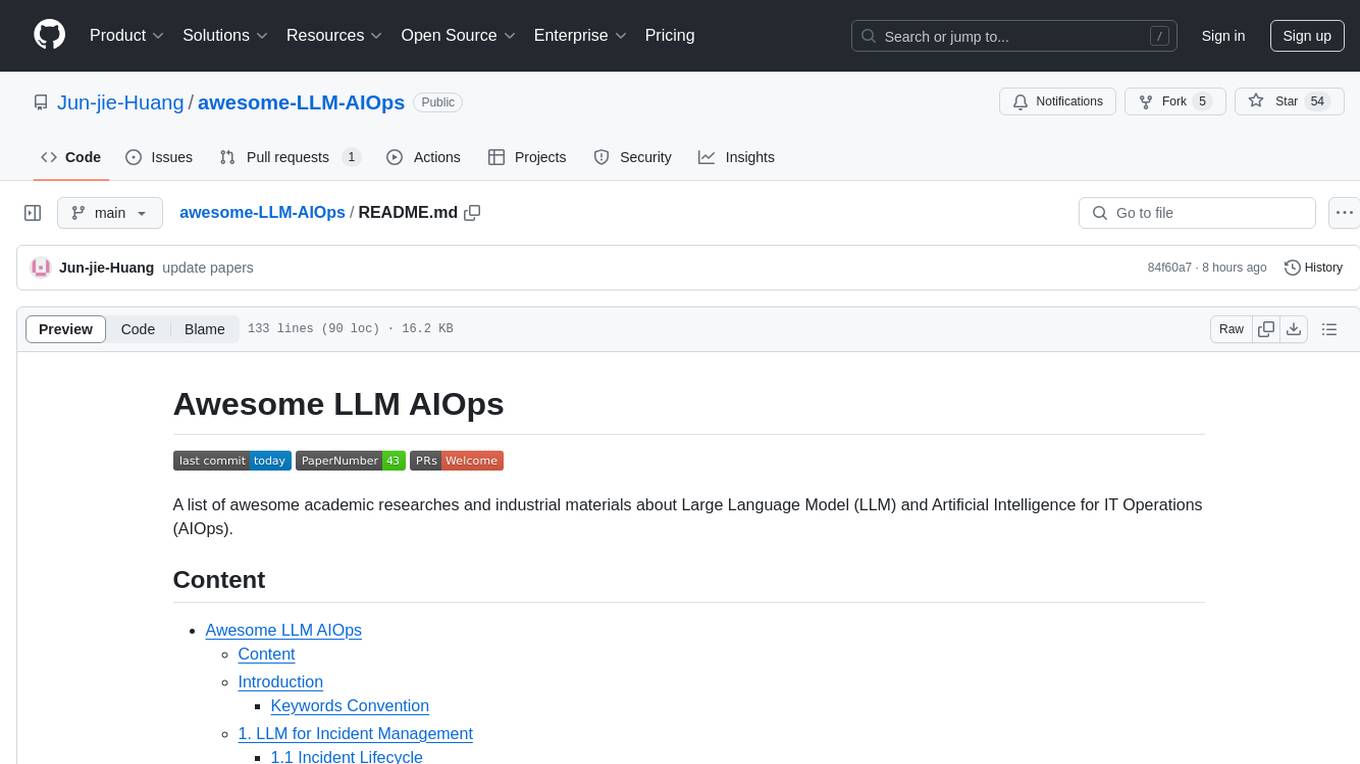
awesome-LLM-AIOps
The 'awesome-LLM-AIOps' repository is a curated list of academic research and industrial materials related to Large Language Models (LLM) and Artificial Intelligence for IT Operations (AIOps). It covers various topics such as incident management, log analysis, root cause analysis, incident mitigation, and incident postmortem analysis. The repository provides a comprehensive collection of papers, projects, and tools related to the application of LLM and AI in IT operations, offering valuable insights and resources for researchers and practitioners in the field.
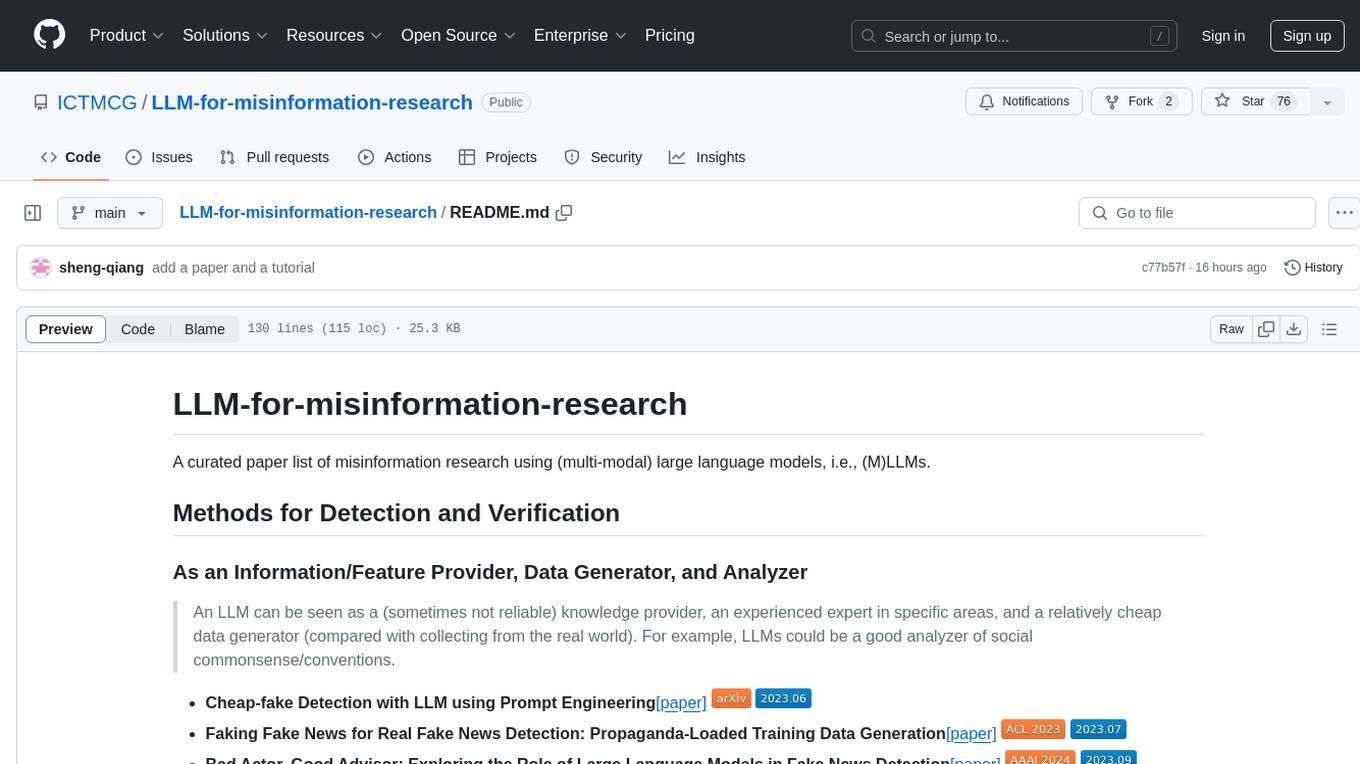
LLM-for-misinformation-research
LLM-for-misinformation-research is a curated paper list of misinformation research using large language models (LLMs). The repository covers methods for detection and verification, tools for fact-checking complex claims, decision-making and explanation, claim matching, post-hoc explanation generation, and other tasks related to combating misinformation. It includes papers on fake news detection, rumor detection, fact verification, and more, showcasing the application of LLMs in various aspects of misinformation research.
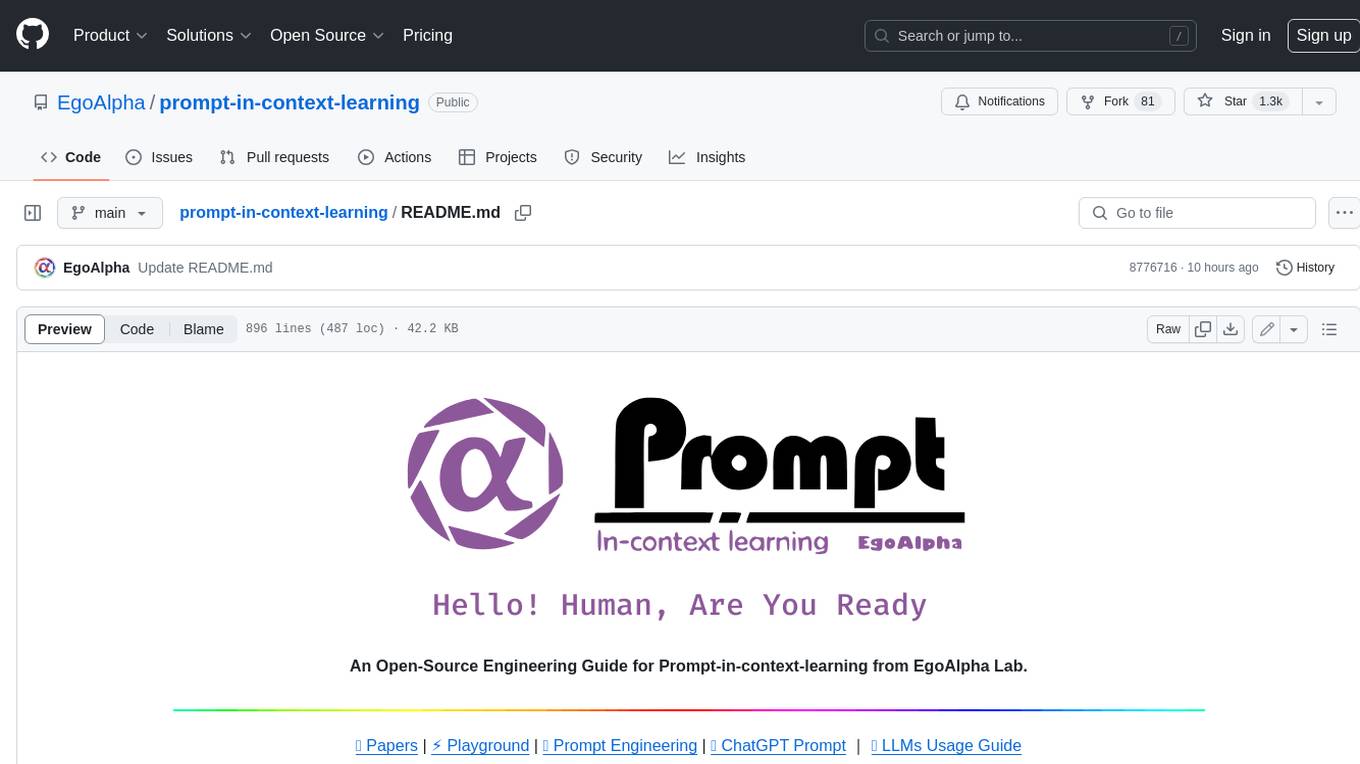
prompt-in-context-learning
An Open-Source Engineering Guide for Prompt-in-context-learning from EgoAlpha Lab. 📝 Papers | ⚡️ Playground | 🛠 Prompt Engineering | 🌍 ChatGPT Prompt | ⛳ LLMs Usage Guide > **⭐️ Shining ⭐️:** This is fresh, daily-updated resources for in-context learning and prompt engineering. As Artificial General Intelligence (AGI) is approaching, let’s take action and become a super learner so as to position ourselves at the forefront of this exciting era and strive for personal and professional greatness. The resources include: _🎉Papers🎉_: The latest papers about _In-Context Learning_ , _Prompt Engineering_ , _Agent_ , and _Foundation Models_. _🎉Playground🎉_: Large language models(LLMs)that enable prompt experimentation. _🎉Prompt Engineering🎉_: Prompt techniques for leveraging large language models. _🎉ChatGPT Prompt🎉_: Prompt examples that can be applied in our work and daily lives. _🎉LLMs Usage Guide🎉_: The method for quickly getting started with large language models by using LangChain. In the future, there will likely be two types of people on Earth (perhaps even on Mars, but that's a question for Musk): - Those who enhance their abilities through the use of AIGC; - Those whose jobs are replaced by AI automation. 💎EgoAlpha: Hello! human👤, are you ready?
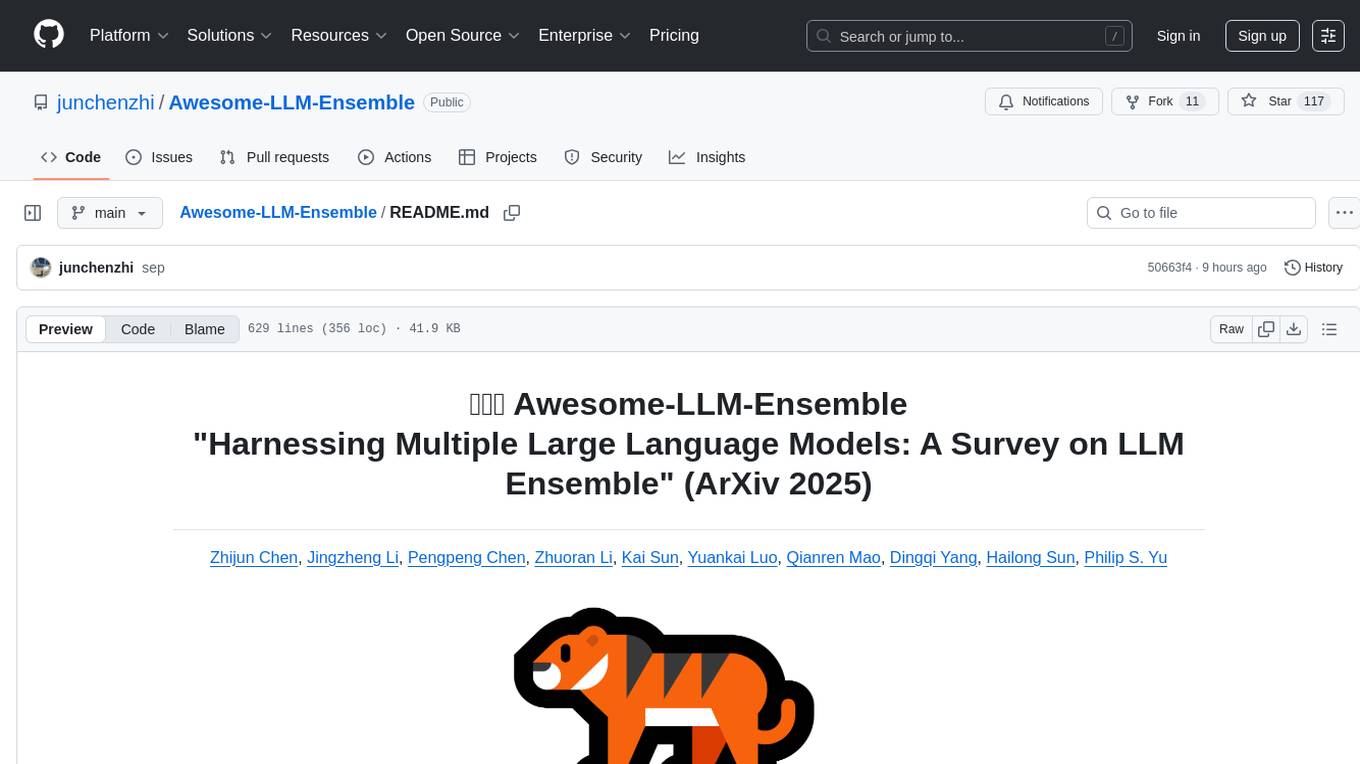
Awesome-LLM-Ensemble
Awesome-LLM-Ensemble is a collection of papers on LLM Ensemble, focusing on the comprehensive use of multiple large language models to benefit from their individual strengths. It provides a systematic review of recent developments in LLM Ensemble, including taxonomy, methods for ensemble before, during, and after inference, benchmarks, applications, and related surveys.
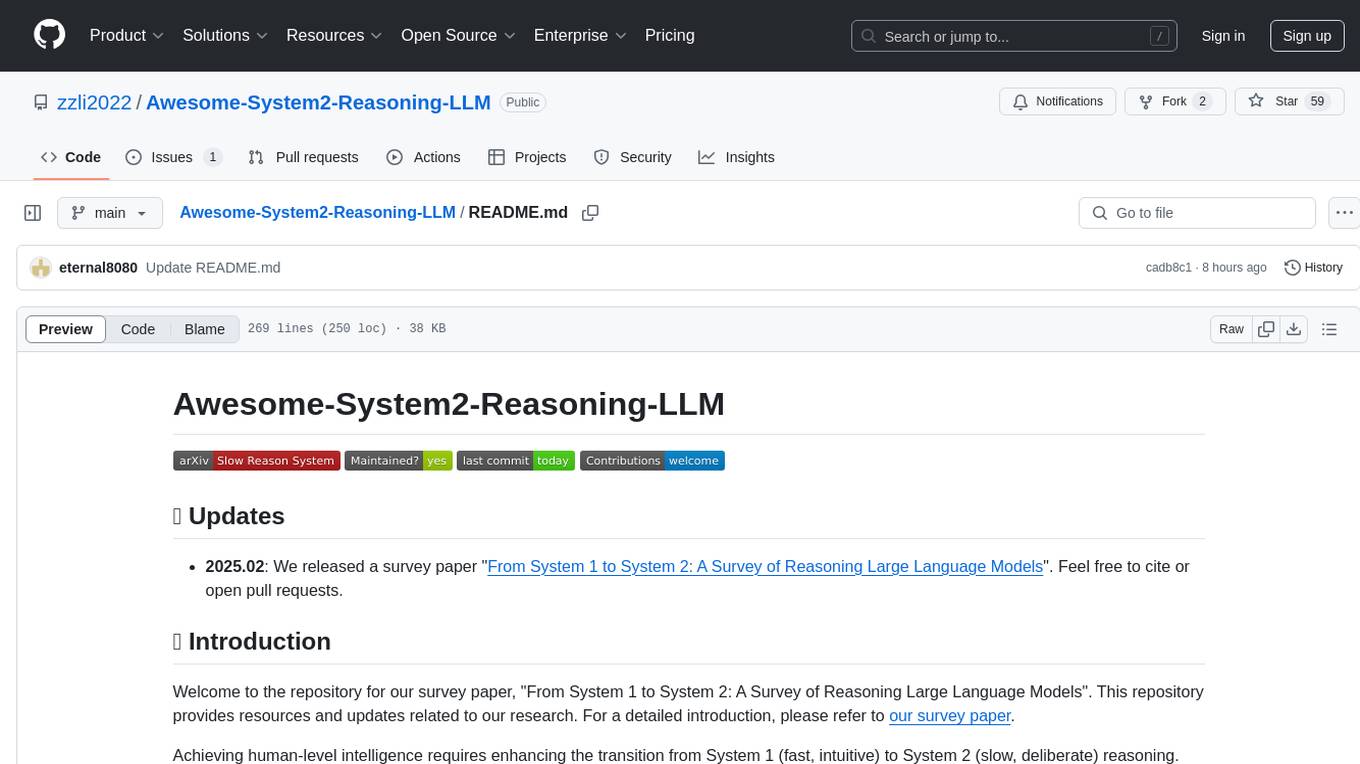
Awesome-System2-Reasoning-LLM
The Awesome-System2-Reasoning-LLM repository is dedicated to a survey paper titled 'From System 1 to System 2: A Survey of Reasoning Large Language Models'. It explores the development of reasoning Large Language Models (LLMs), their foundational technologies, benchmarks, and future directions. The repository provides resources and updates related to the research, tracking the latest developments in the field of reasoning LLMs.
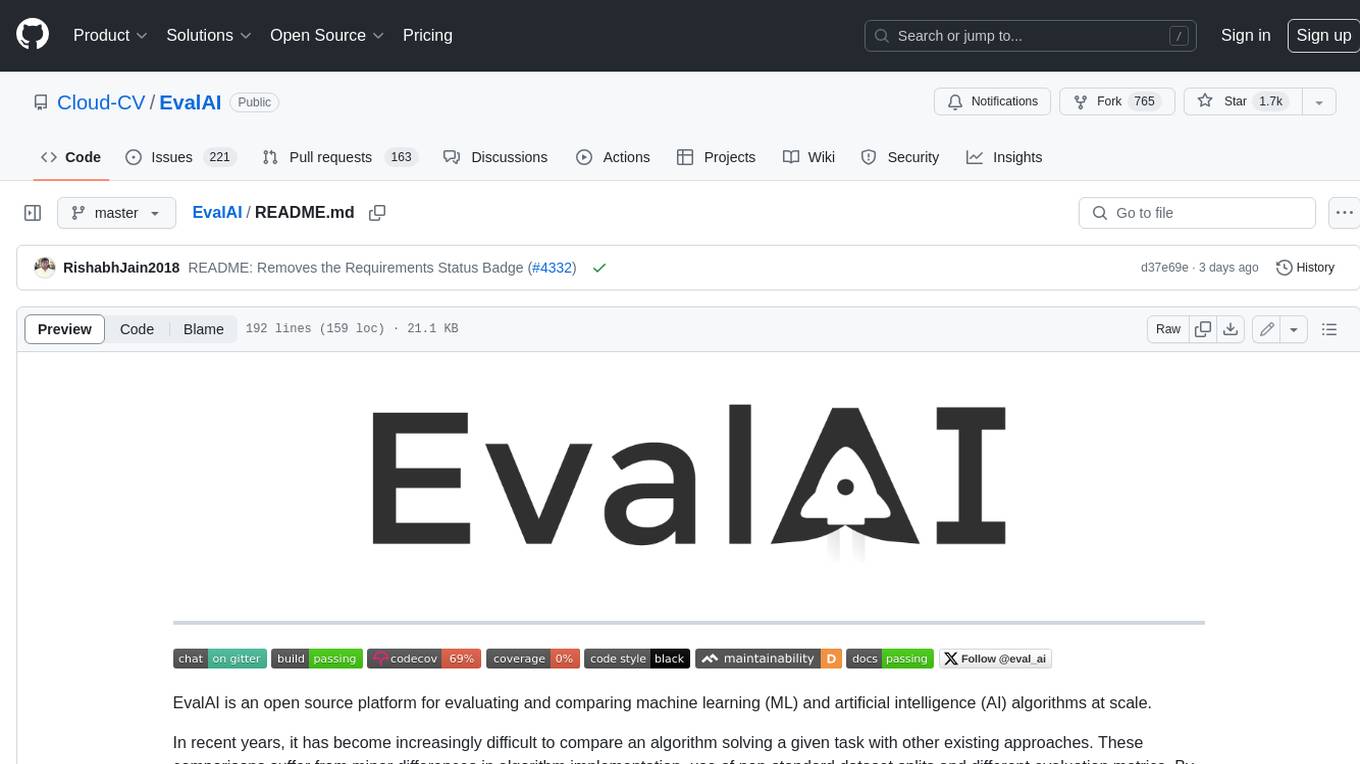
EvalAI
EvalAI is an open-source platform for evaluating and comparing machine learning (ML) and artificial intelligence (AI) algorithms at scale. It provides a central leaderboard and submission interface, making it easier for researchers to reproduce results mentioned in papers and perform reliable & accurate quantitative analysis. EvalAI also offers features such as custom evaluation protocols and phases, remote evaluation, evaluation inside environments, CLI support, portability, and faster evaluation.
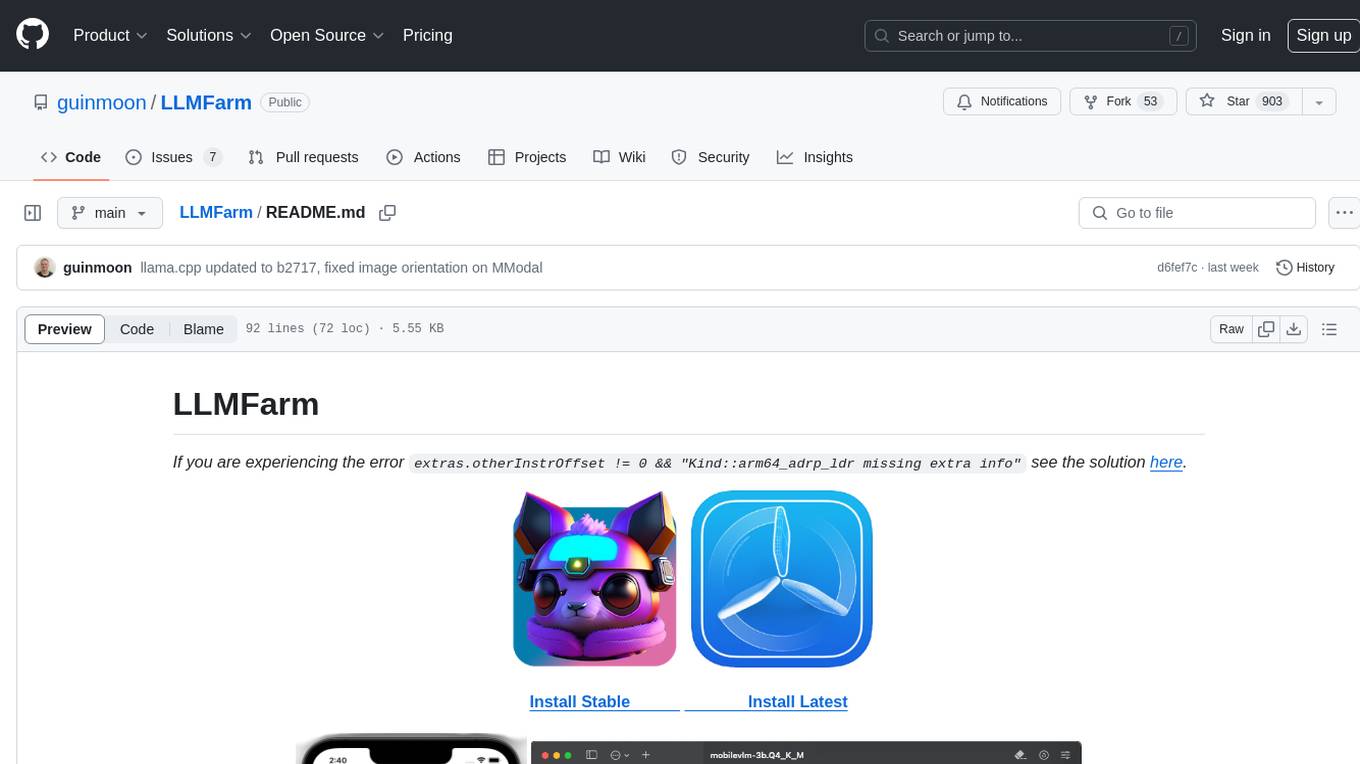
LLMFarm
LLMFarm is an iOS and MacOS app designed to work with large language models (LLM). It allows users to load different LLMs with specific parameters, test the performance of various LLMs on iOS and macOS, and identify the most suitable model for their projects. The tool is based on ggml and llama.cpp by Georgi Gerganov and incorporates sources from rwkv.cpp by saharNooby, Mia by byroneverson, and LlamaChat by alexrozanski. LLMFarm features support for MacOS (13+) and iOS (16+), various inferences and sampling methods, Metal compatibility (not supported on Intel Mac), model setting templates, LoRA adapters support, LoRA finetune support, LoRA export as model support, and more. It also offers a range of inferences including LLaMA, GPTNeoX, Replit, GPT2, Starcoder, RWKV, Falcon, MPT, Bloom, and others. Additionally, it supports multimodal models like LLaVA, Obsidian, and MobileVLM. Users can customize inference options through JSON files and access supported models for download.
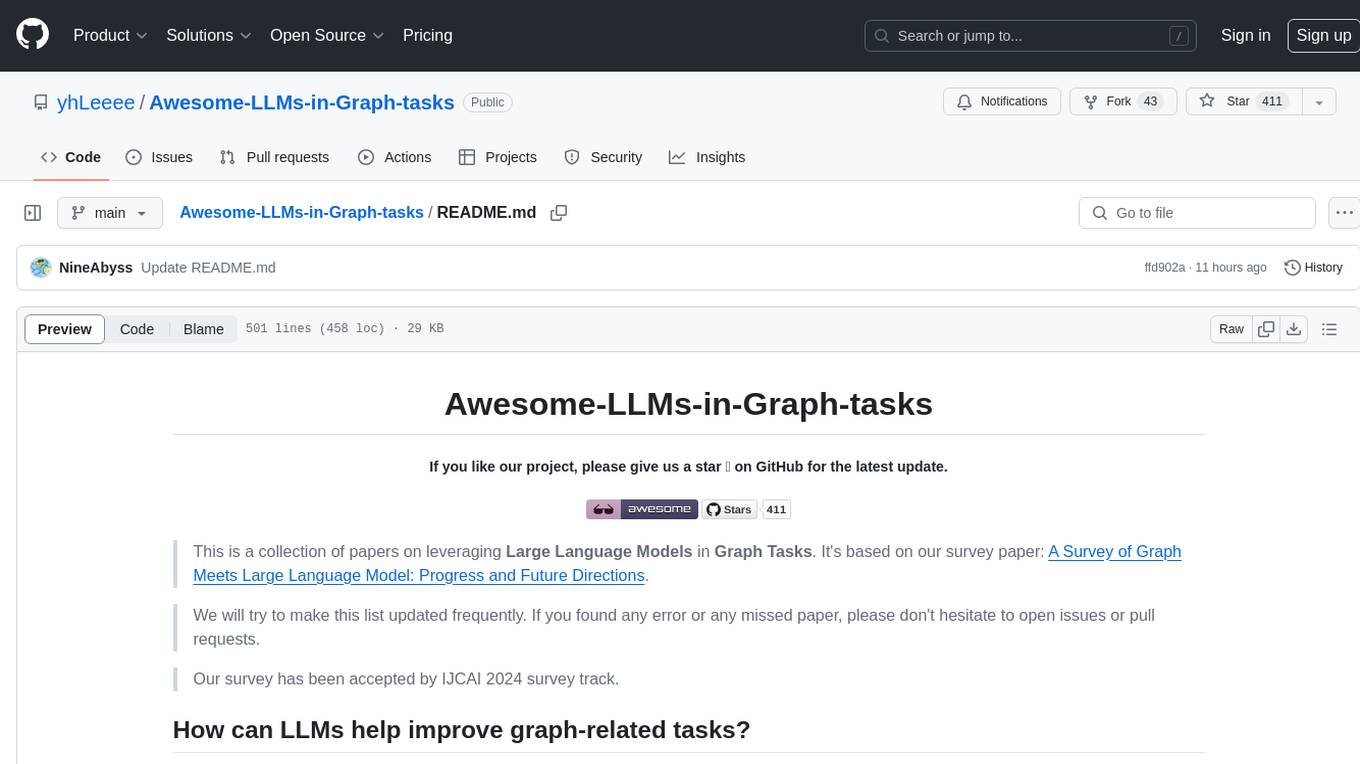
Awesome-LLMs-in-Graph-tasks
This repository is a collection of papers on leveraging Large Language Models (LLMs) in Graph Tasks. It provides a comprehensive overview of how LLMs can enhance graph-related tasks by combining them with traditional Graph Neural Networks (GNNs). The integration of LLMs with GNNs allows for capturing both structural and contextual aspects of nodes in graph data, leading to more powerful graph learning. The repository includes summaries of various models that leverage LLMs to assist in graph-related tasks, along with links to papers and code repositories for further exploration.
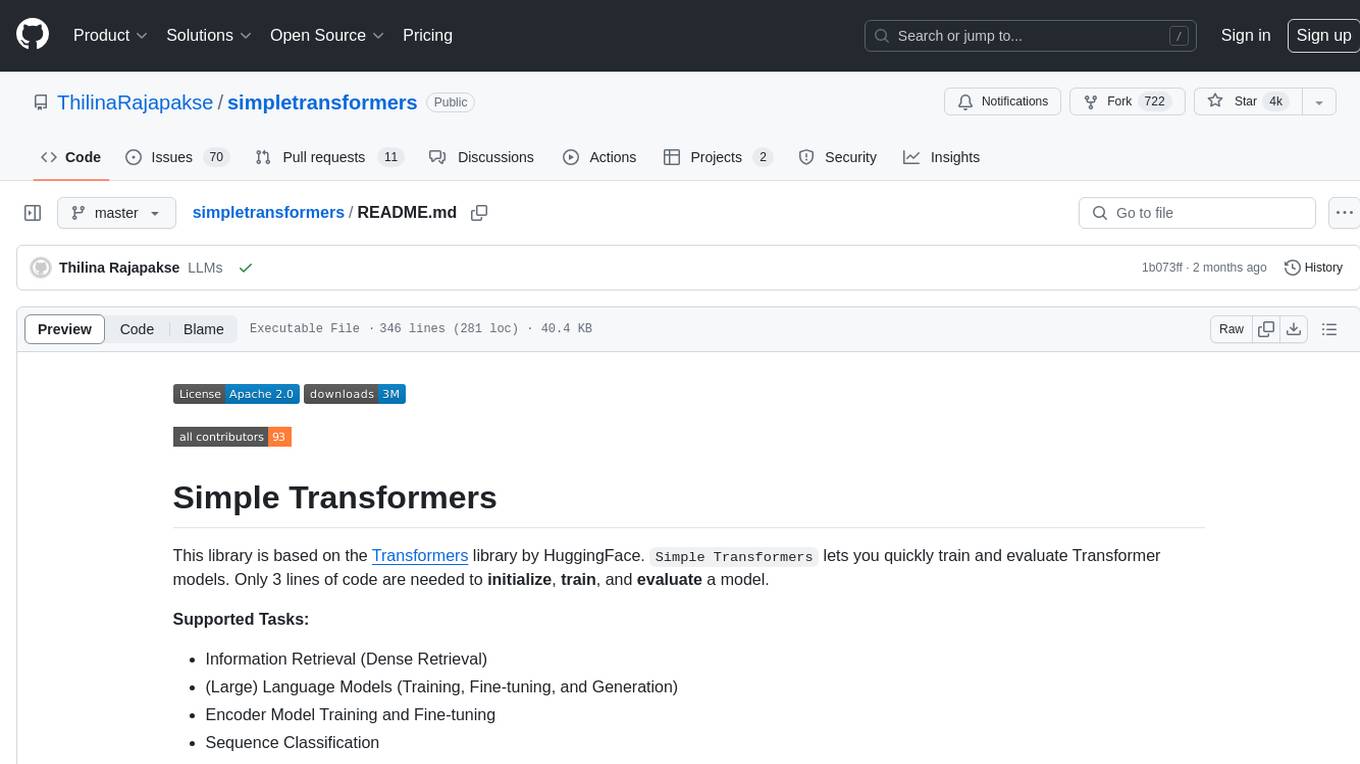
simpletransformers
Simple Transformers is a library based on the Transformers library by HuggingFace, allowing users to quickly train and evaluate Transformer models with only 3 lines of code. It supports various tasks such as Information Retrieval, Language Models, Encoder Model Training, Sequence Classification, Token Classification, Question Answering, Language Generation, T5 Model, Seq2Seq Tasks, Multi-Modal Classification, and Conversational AI.
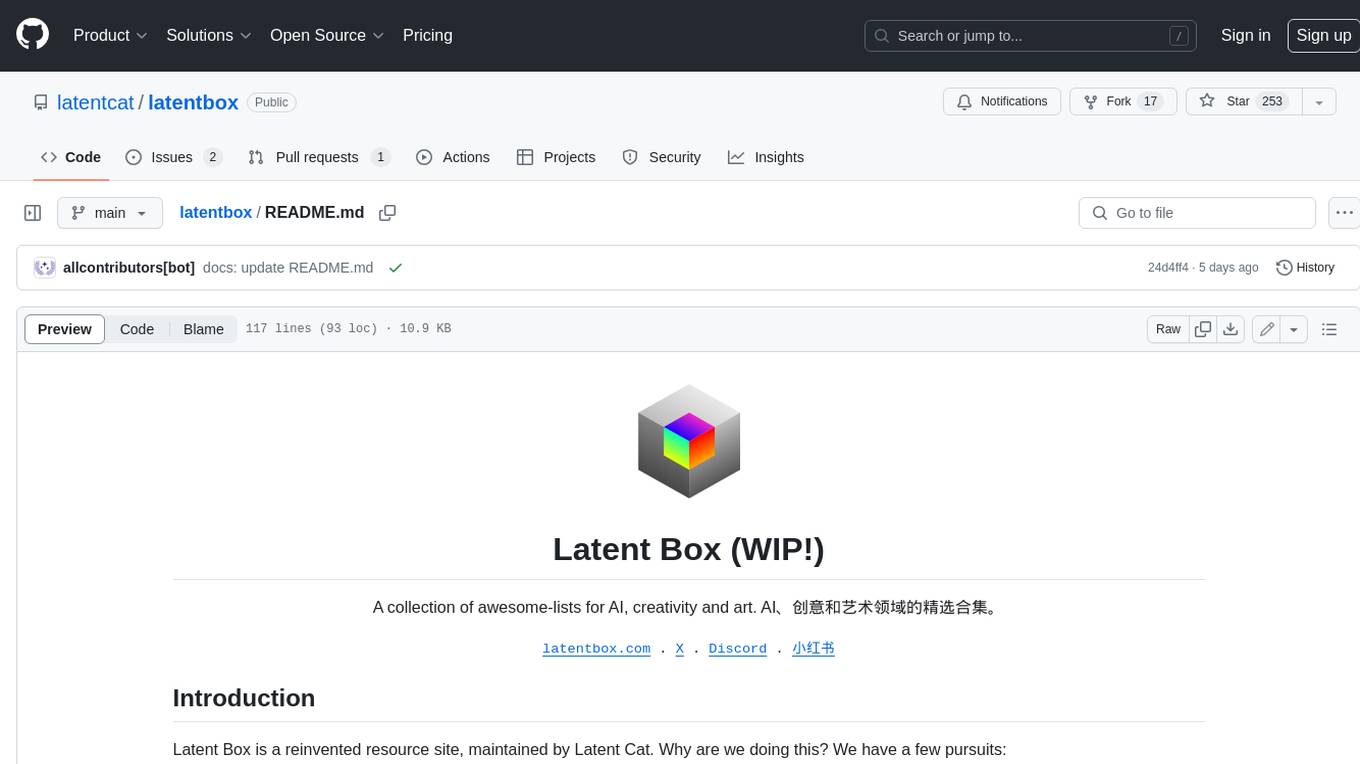
latentbox
Latent Box is a curated collection of resources for AI, creativity, and art. It aims to bridge the information gap with high-quality content, promote diversity and interdisciplinary collaboration, and maintain updates through community co-creation. The website features a wide range of resources, including articles, tutorials, tools, and datasets, covering various topics such as machine learning, computer vision, natural language processing, generative art, and creative coding.
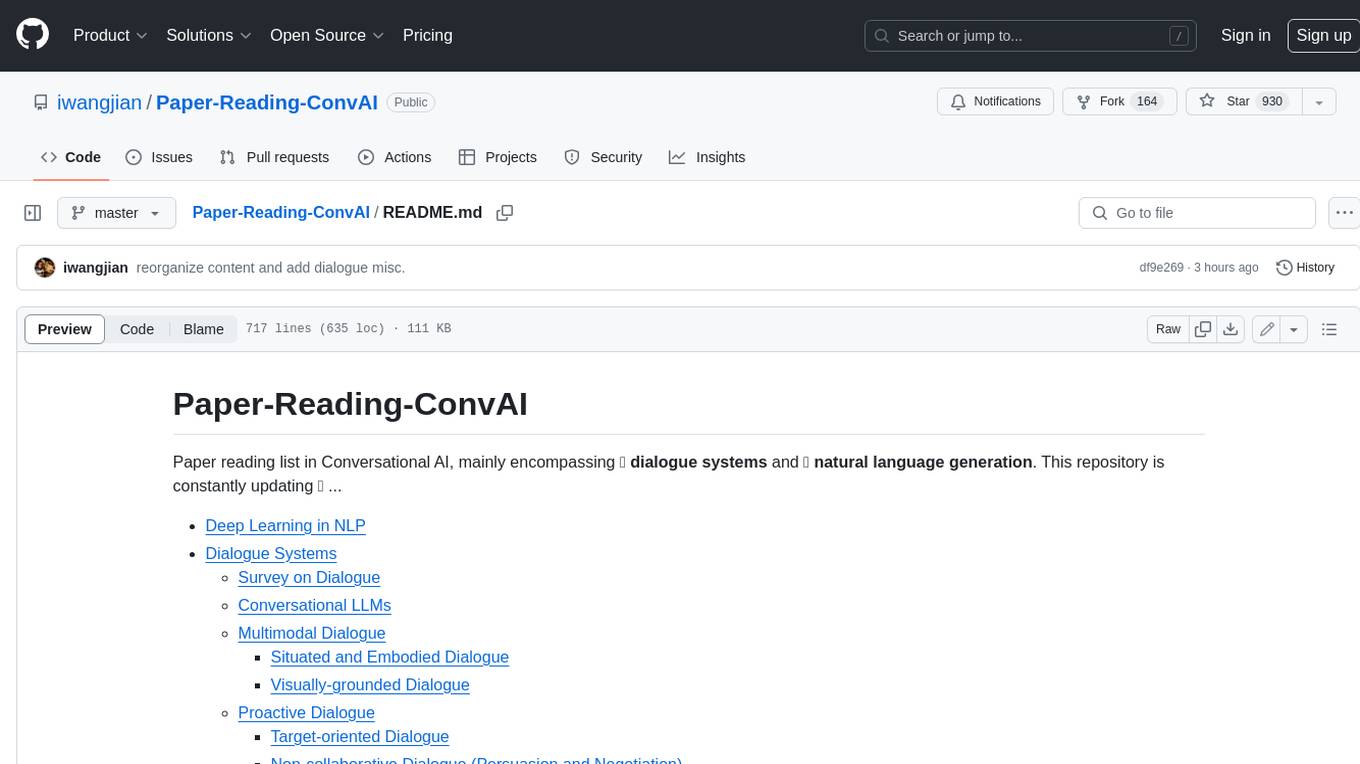
Paper-Reading-ConvAI
Paper-Reading-ConvAI is a repository that contains a list of papers, datasets, and resources related to Conversational AI, mainly encompassing dialogue systems and natural language generation. This repository is constantly updating.
For similar tasks

LLM-IR-Bias-Fairness-Survey
LLM-IR-Bias-Fairness-Survey is a collection of papers related to bias and fairness in Information Retrieval (IR) with Large Language Models (LLMs). The repository organizes papers according to a survey paper titled 'Bias and Unfairness in Information Retrieval Systems: New Challenges in the LLM Era'. The survey provides a comprehensive review of emerging issues related to bias and unfairness in the integration of LLMs into IR systems, categorizing mitigation strategies into data sampling and distribution reconstruction approaches.
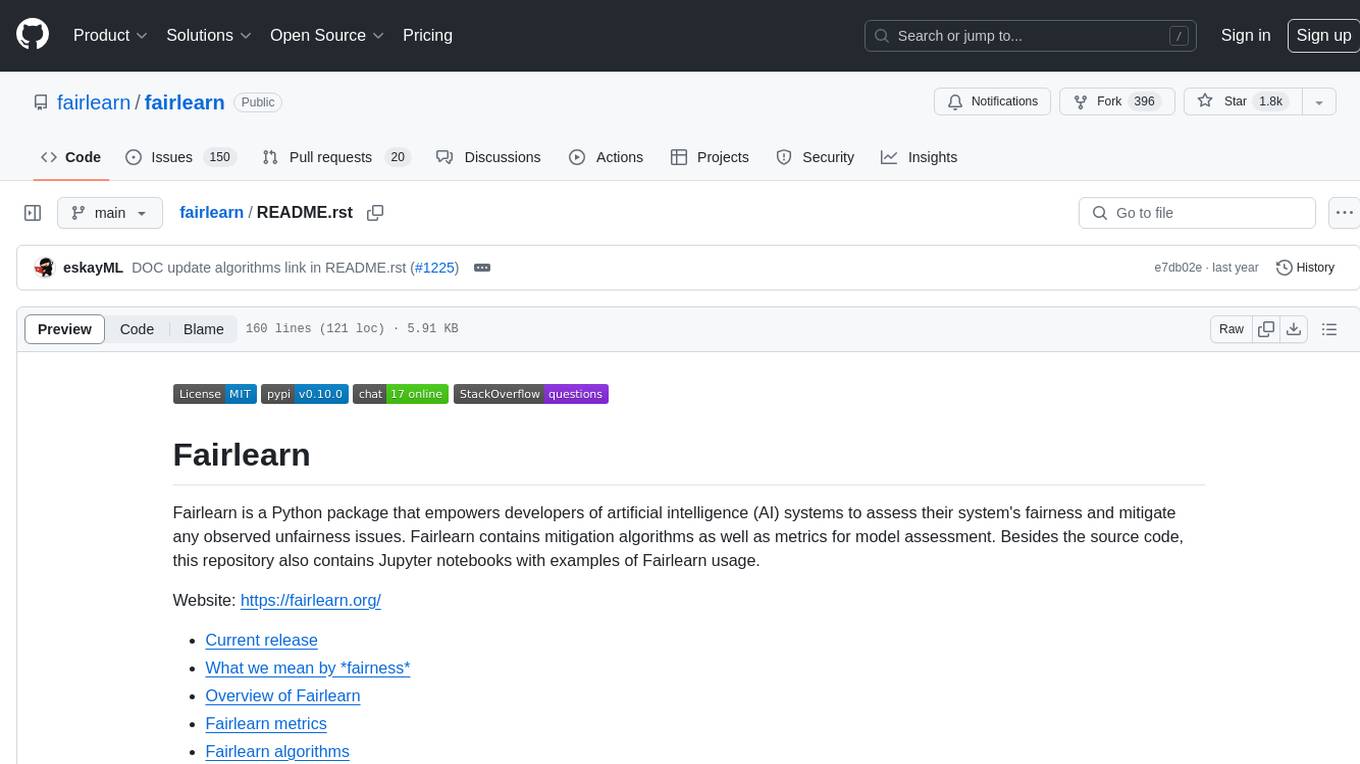
fairlearn
Fairlearn is a Python package designed to help developers assess and mitigate fairness issues in artificial intelligence (AI) systems. It provides mitigation algorithms and metrics for model assessment. Fairlearn focuses on two types of harms: allocation harms and quality-of-service harms. The package follows the group fairness approach, aiming to identify groups at risk of experiencing harms and ensuring comparable behavior across these groups. Fairlearn consists of metrics for assessing model impacts and algorithms for mitigating unfairness in various AI tasks under different fairness definitions.
For similar jobs
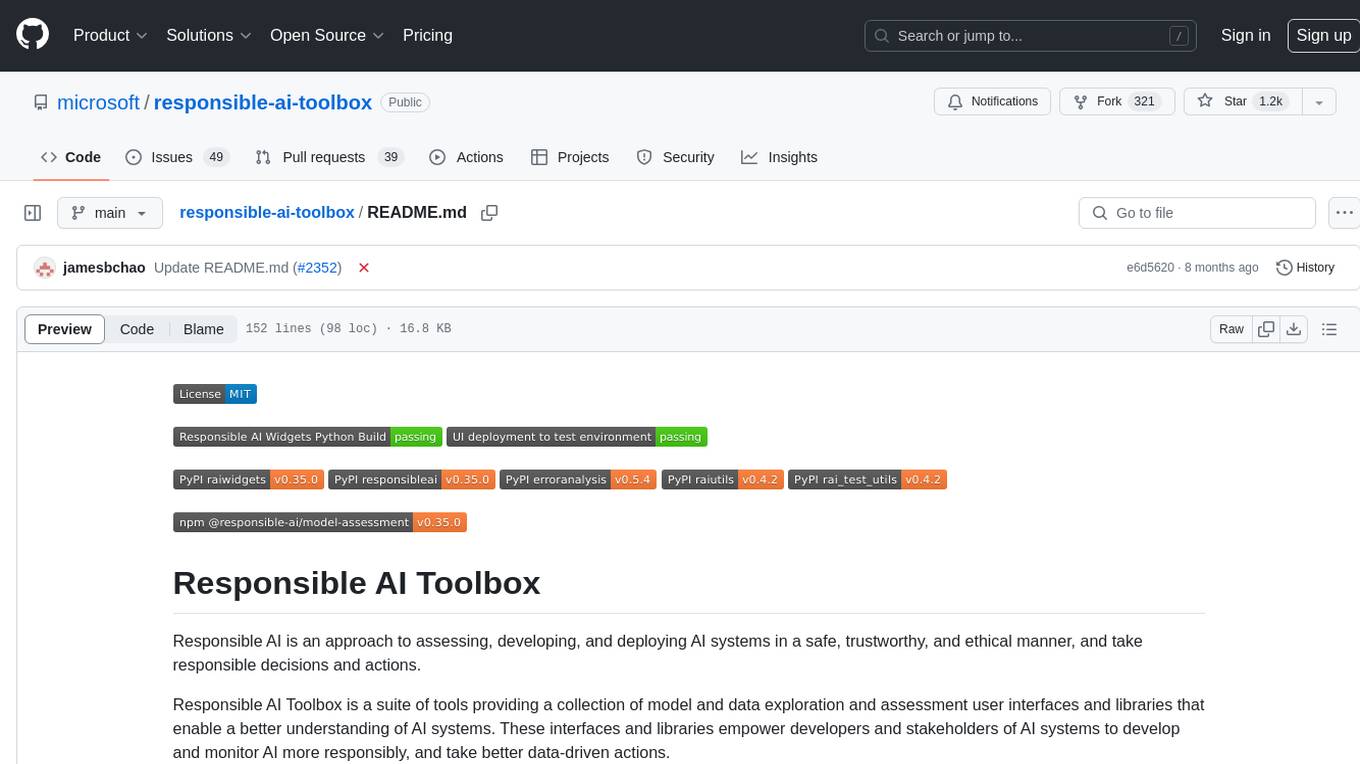
responsible-ai-toolbox
Responsible AI Toolbox is a suite of tools providing model and data exploration and assessment interfaces and libraries for understanding AI systems. It empowers developers and stakeholders to develop and monitor AI responsibly, enabling better data-driven actions. The toolbox includes visualization widgets for model assessment, error analysis, interpretability, fairness assessment, and mitigations library. It also offers a JupyterLab extension for managing machine learning experiments and a library for measuring gender bias in NLP datasets.

fairlearn
Fairlearn is a Python package designed to help developers assess and mitigate fairness issues in artificial intelligence (AI) systems. It provides mitigation algorithms and metrics for model assessment. Fairlearn focuses on two types of harms: allocation harms and quality-of-service harms. The package follows the group fairness approach, aiming to identify groups at risk of experiencing harms and ensuring comparable behavior across these groups. Fairlearn consists of metrics for assessing model impacts and algorithms for mitigating unfairness in various AI tasks under different fairness definitions.
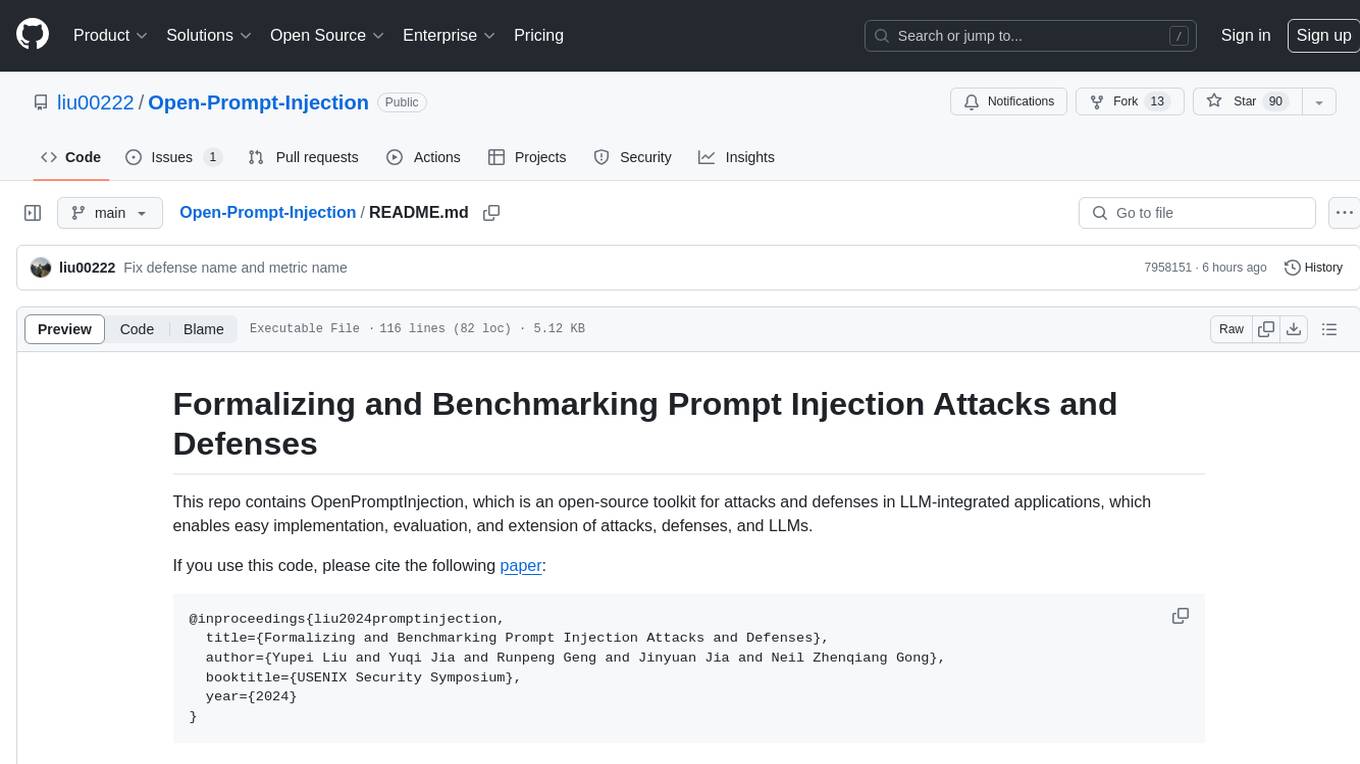
Open-Prompt-Injection
OpenPromptInjection is an open-source toolkit for attacks and defenses in LLM-integrated applications, enabling easy implementation, evaluation, and extension of attacks, defenses, and LLMs. It supports various attack and defense strategies, including prompt injection, paraphrasing, retokenization, data prompt isolation, instructional prevention, sandwich prevention, perplexity-based detection, LLM-based detection, response-based detection, and know-answer detection. Users can create models, tasks, and apps to evaluate different scenarios. The toolkit currently supports PaLM2 and provides a demo for querying models with prompts. Users can also evaluate ASV for different scenarios by injecting tasks and querying models with attacked data prompts.
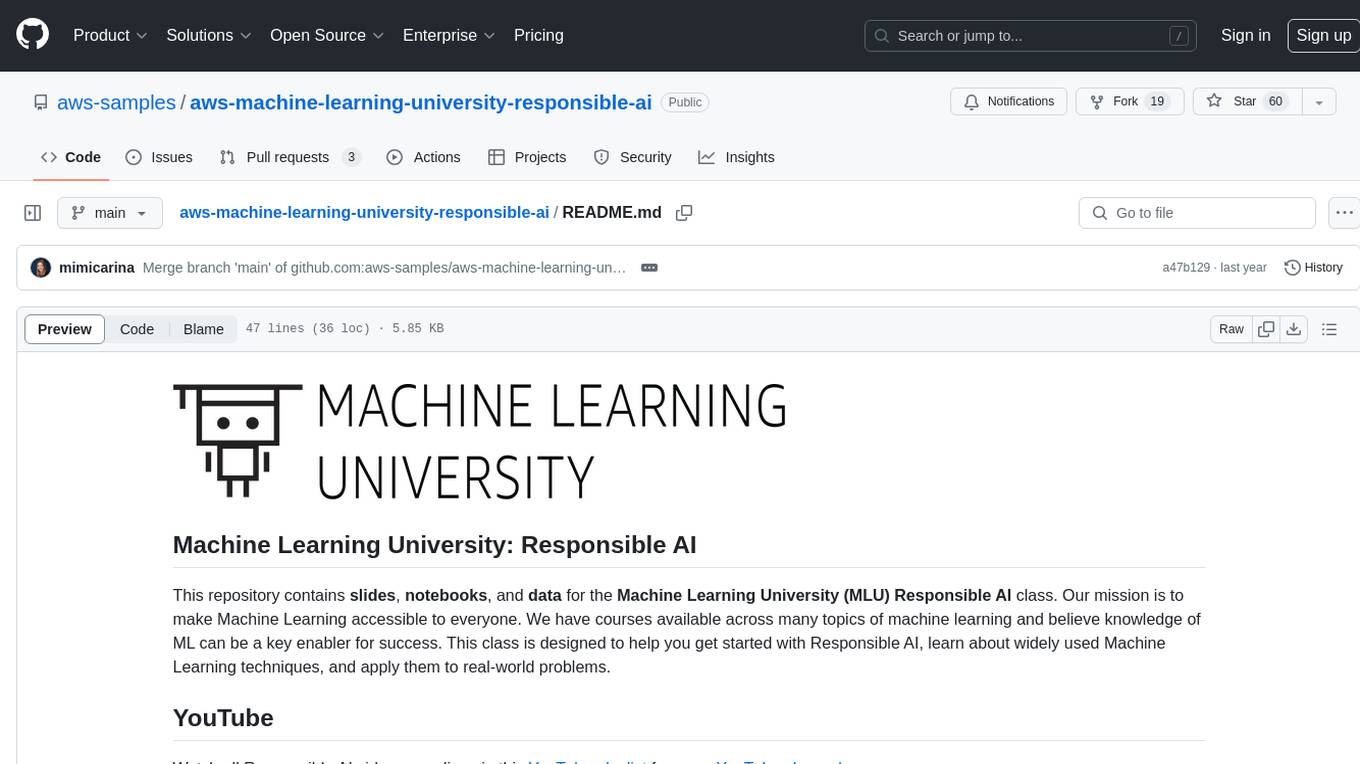
aws-machine-learning-university-responsible-ai
This repository contains slides, notebooks, and data for the Machine Learning University (MLU) Responsible AI class. The mission is to make Machine Learning accessible to everyone, covering widely used ML techniques and applying them to real-world problems. The class includes lectures, final projects, and interactive visuals to help users learn about Responsible AI and core ML concepts.
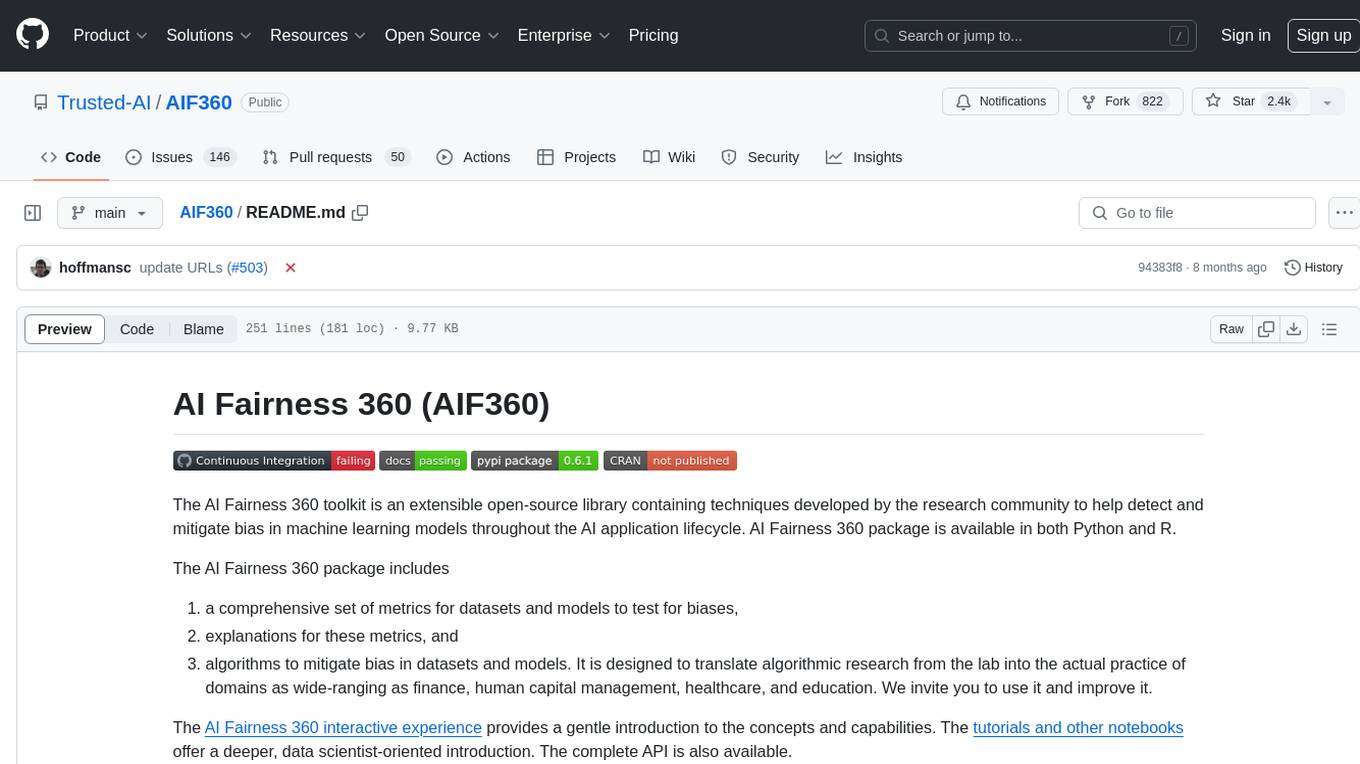
AIF360
The AI Fairness 360 toolkit is an open-source library designed to detect and mitigate bias in machine learning models. It provides a comprehensive set of metrics, explanations, and algorithms for bias mitigation in various domains such as finance, healthcare, and education. The toolkit supports multiple bias mitigation algorithms and fairness metrics, and is available in both Python and R. Users can leverage the toolkit to ensure fairness in AI applications and contribute to its development for extensibility.
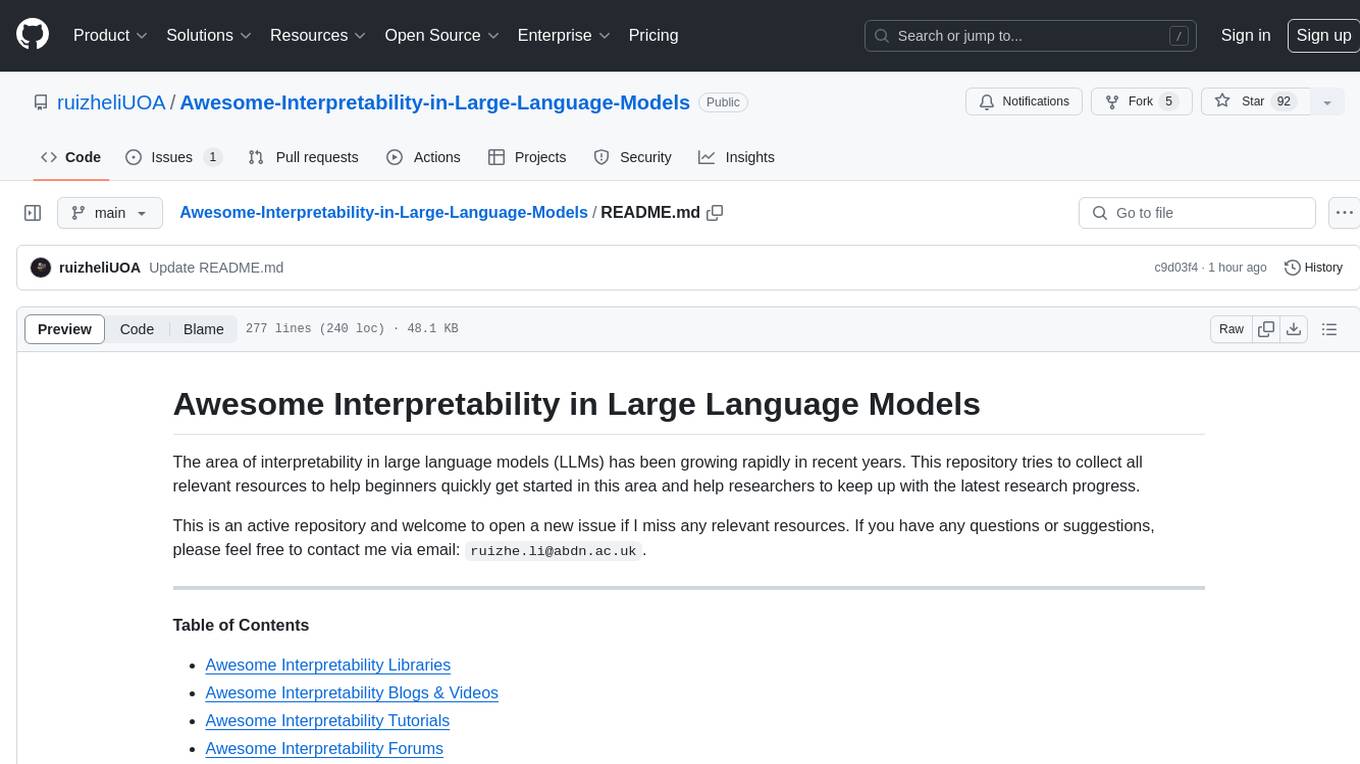
Awesome-Interpretability-in-Large-Language-Models
This repository is a collection of resources focused on interpretability in large language models (LLMs). It aims to help beginners get started in the area and keep researchers updated on the latest progress. It includes libraries, blogs, tutorials, forums, tools, programs, papers, and more related to interpretability in LLMs.
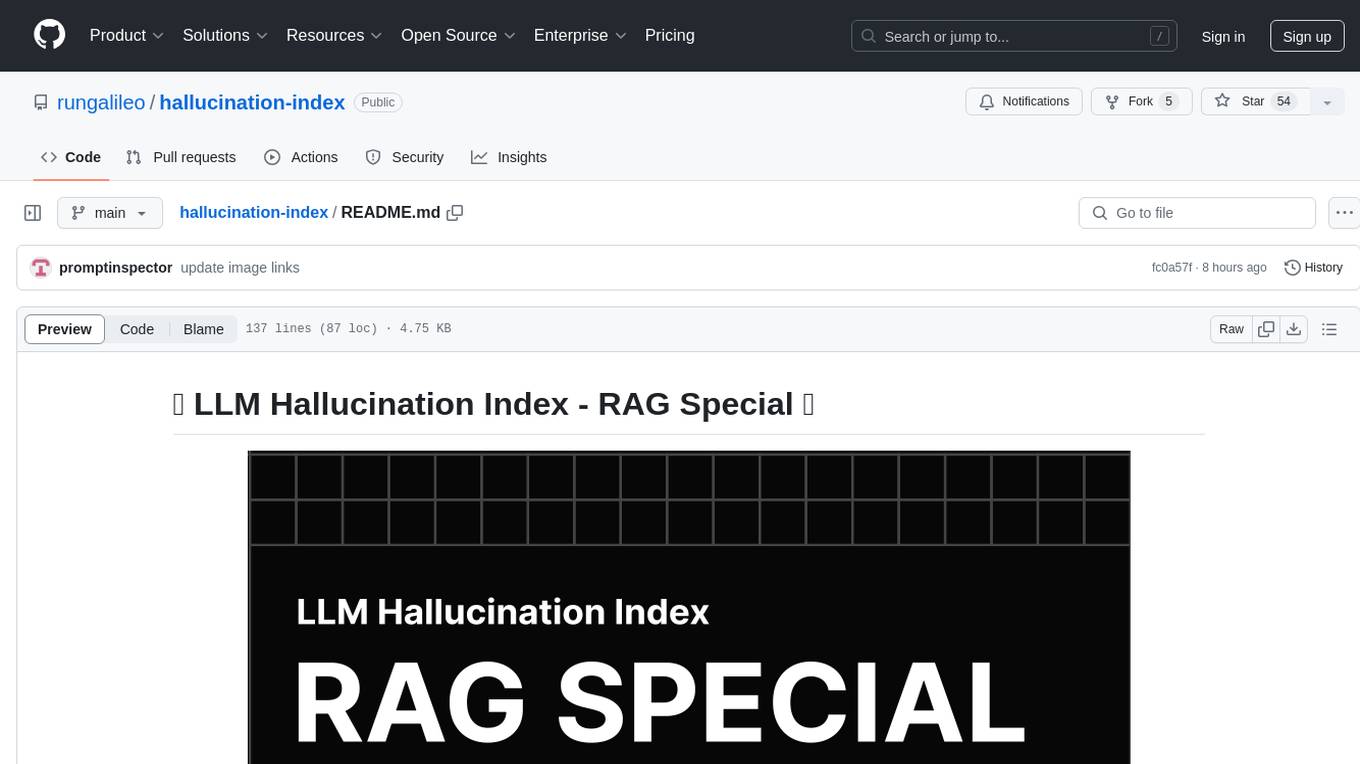
hallucination-index
LLM Hallucination Index - RAG Special is a comprehensive evaluation of large language models (LLMs) focusing on context length and open vs. closed-source attributes. The index explores the impact of context length on model performance and tests the assumption that closed-source LLMs outperform open-source ones. It also investigates the effectiveness of prompting techniques like Chain-of-Note across different context lengths. The evaluation includes 22 models from various brands, analyzing major trends and declaring overall winners based on short, medium, and long context insights. Methodologies involve rigorous testing with different context lengths and prompting techniques to assess models' abilities in handling extensive texts and detecting hallucinations.
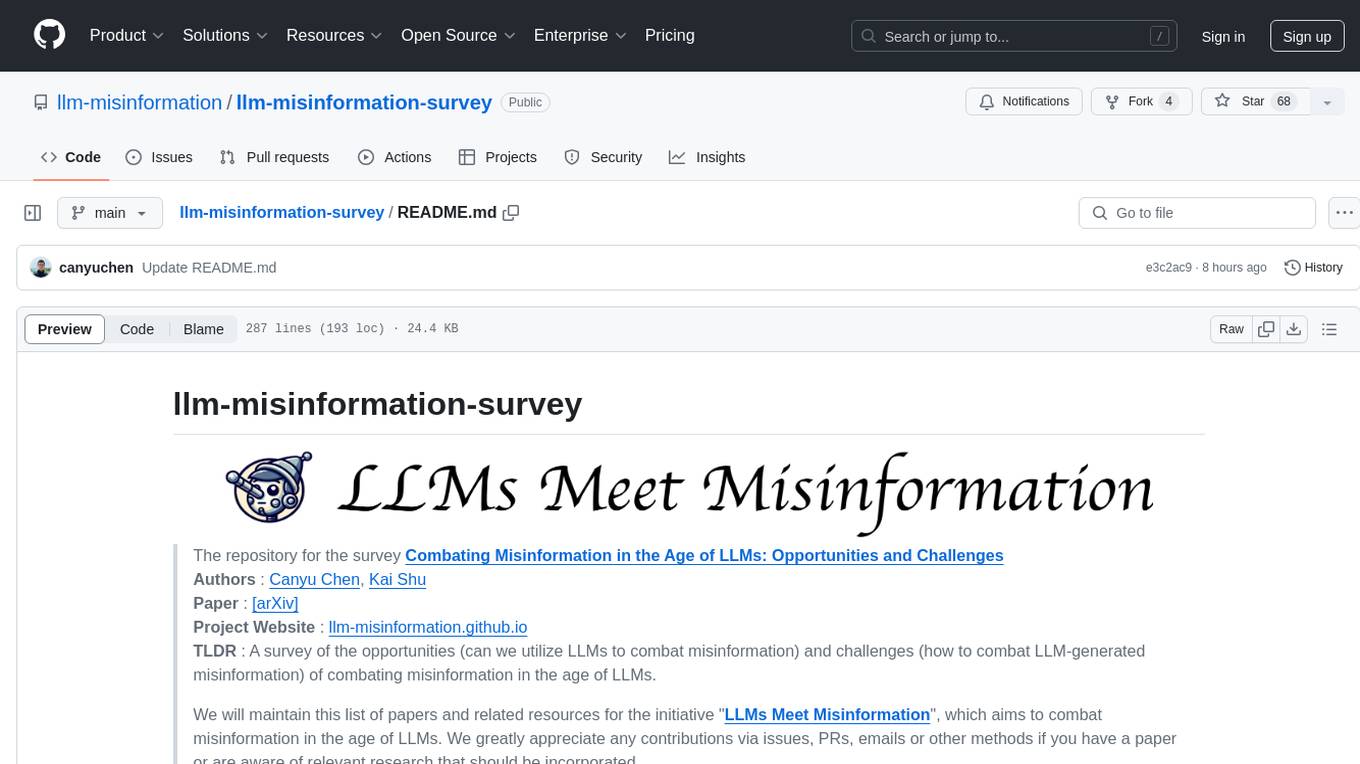
llm-misinformation-survey
The 'llm-misinformation-survey' repository is dedicated to the survey on combating misinformation in the age of Large Language Models (LLMs). It explores the opportunities and challenges of utilizing LLMs to combat misinformation, providing insights into the history of combating misinformation, current efforts, and future outlook. The repository serves as a resource hub for the initiative 'LLMs Meet Misinformation' and welcomes contributions of relevant research papers and resources. The goal is to facilitate interdisciplinary efforts in combating LLM-generated misinformation and promoting the responsible use of LLMs in fighting misinformation.




















